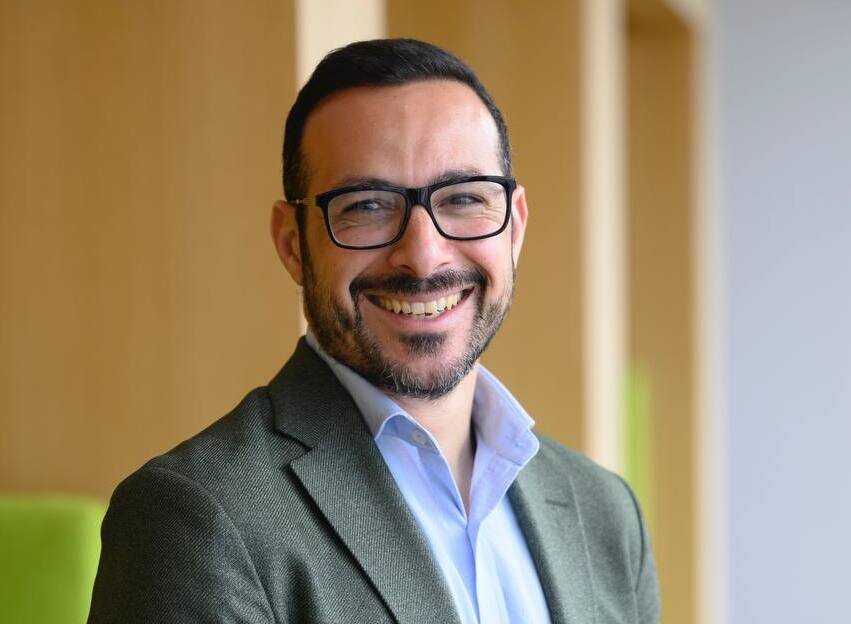by Shoira Toirova
In this interview, we sit down with Ozan Sevimli, former Country Manager of the World Bank Group in Tajikistan, whose time in the country left a lasting imprint on both his career and soul. He led the World Bank’s efforts during a globally transformative period — navigating the aftermath of the COVID-19 pandemic, intensifying climate challenges, and mounting pressure for more inclusive and resilient development. His leadership was not only timely but also deeply personal, shaped by empathy, adaptability, and genuine partnership with local communities.
Through his reflections, we gain insight into the human side of international development — where impact is measured not only in statistics and infrastructure, but also in electrified mountain homes, empowered farmers, and the eyes of children who now have access to healthcare and education. Ozan’s journey in Tajikistan is a powerful reminder that even in times of global uncertainty, progress takes root through trust, humility, and shared vision.
His time in Tajikistan was more than just a professional assignment—it was a journey of the heart. His reflections remind us that development is not merely about infrastructure and policies; it is about people, relationships, and the quiet revolutions that happen when lives are changed for the better.
Q: Looking back at your time in Tajikistan, how would you describe your overall experience — and what projects or moments left the deepest impact?
A: My time in Tajikistan was both professionally fulfilling and personally transformative. I had the privilege of leading projects that directly touched people’s lives — from supporting women farmers and expanding healthcare access to bringing electricity to remote villages. But beyond the numbers, it was the people who moved me most: the resilience of youth, the warmth of families, the joy of seeing a home lit for the first time.
The impact of these projects goes far beyond economic progress. Thanks to the World Bank Group and other international partners, Tajikistan has seen significant improvements in various sectors. Here are some key achievements:
Supporting women farmers: over 5,000 women received assistance to grow their businesses and enhance sustainable agriculture.
Providing clean water: more than 1.7 million people in rural communities now have safe drinking water, improving public health and sanitation.
Enhancing digital infrastructure: the World Bank’s digital initiatives helped improve internet access for 57% of the population, driving connectivity and innovation.
One unforgettable moment was dancing in a Pamiri home newly electrified — the happiness was indescribable. Tajikistan embraced me, and in return, I gave it my heart.
Another memorable experience was meeting families in remote villages who had gained access to healthcare. Seeing a father tearfully embrace me after his child received life-saving treatment at a special needs health facility financed by the World Bank showed me the true measure of impact.
Q: How has your multicultural background influenced your approach to international development and your work in Tajikistan?
A: Coming from both Turkish and German roots helped me connect across cultures — the Tajik sense of hospitality and community felt deeply familiar.
Tajikistan reinforced a key leadership lesson: strategy alone is not enough — true progress requires empathy, listening, and co-creation. Real progress comes from working with people, not just for them. I saw the strength of local wisdom, especially among youth, and learned the value of humility in shaping sustainable solutions. This approach was essential in adapting development efforts to real-world challenges in Tajikistan.
Q: What were some challenges you faced, and how did you navigate them — and what future opportunities do you see for Tajikistan’s development?
A: One key challenge was the limited local capacity in technical fields — procurement, monitoring, safeguards. It reflects broader human capital gaps. But Tajikistan’s youth gave me hope; they’re smart, driven, and eager to grow.
Meeting the President was a profound experience — every single time. His passion and love for his people and country are evident in every interaction. His commitment to advancing the country’s development is unmistakable. I always describe my meetings with him as gaining a 360-degree view — while many of us see small angles, he often reveals the full context of the situation.
Tajikistan’s young population presents a significant advantage for the country’s development. The increasing digital transformation, with 57% of the population now online, is opening new doors in technology and entrepreneurship. As one of the world’s most hydropower-rich nations, Tajikistan has the potential to expand clean energy production and strengthen its presence in the global market. The country’s agricultural and textile industries are steadily growing, enhancing export opportunities and boosting economic resilience. Furthermore, its breathtaking landscapes provide immense potential for eco-tourism, which could become a major contributor to sustainable development. My optimism for Tajikistan’s future is deeply rooted in the belief that its young people, with their resilience and creativity, will shape the next chapter of progress. With the right investment in education, digital skills, and innovation, they can drive the country toward a green and inclusive future.
For international partners, establishing genuine relationships is crucial. It is essential to collaborate with Tajikistan as an engaged partner rather than merely operating within its borders. A deep understanding of the local context, coupled with adaptability and active listening, plays a key role in ensuring meaningful development efforts. Long-term sustainability should remain a priority, as lasting progress stems from inclusive and well-integrated solutions that address the country’s specific needs.
For young professionals, confidence in their abilities will be a driving force in making a real impact. Remaining curious and technologically adept is vital, as digital skills, sustainability, and AI will shape the future of global industries. Ambition should extend beyond borders, as Tajikistan holds immense potential to establish itself in the global economy. With determination and forward-thinking, the next generation can lead the way toward meaningful change.
Q: Would you like to return to Tajikistan someday — and what message would you share with the country’s next generation of leaders?
A: I will definitely come back to visit all the wonderful friends I now have in Tajikistan. I would also love to return professionally, of course. Let’s see what the future brings.
The youth of Tajikistan hold the key to the nation’s future. By pursuing their dreams with passion and dedication, they can make meaningful contributions to their communities and drive positive change. Deep engagement with local challenges will allow them to create impactful solutions, ensuring long-term progress. Staying curious and embracing technology will be essential, as innovation and learning shape the world of tomorrow. Their resilience, adaptability, and creativity will define the next chapter of Tajikistan’s journey. With confidence in their abilities, they can continue moving forward toward a brighter future.




